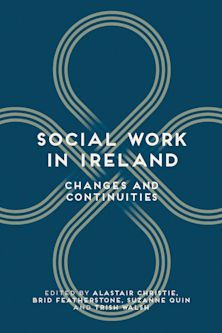- Home
- ACADEMIC
- Social Work & Social Welfare
- Social Work - Other
- The Poorhouse
This product is usually dispatched within 3 days
- Delivery and returns info
-
Free US delivery on orders $35 or over
Exam copy added to basket
Choose your preferred format. Please note ebook exam copies are fulfilled by VitalSource™.
You must sign in to add this item to your wishlist. Please sign in or create an account
Description
Many of us grew up hearing our parents exclaim "you are driving me to the poorhouse!" or remember the card in the "Monopoly" game which says "Go to the Poorhouse! Lose a Turn!" Yet most Americans know little or nothing of this institution that existed under a variety of names for approximately three hundred years of American history. Surprisingly these institutions variously named poorhouses, poor farms, sometimes almshouses or workhouses, have received rather scant academic treatment, as well, though tens of millions of poor people were confined there, while often their neighbors talked in hushed tones and in fear of their own fate at the "specter of the poorhouse."
Based on the author's study of six New England poorhouses/poor farms, a hidden story in America's history is presented which will be of popular interest as well as useful as a text in social welfare and social history. While the poorhouse's mission was character reform and "repressing pauperism," these goals were gradually undermined by poor people themselves, who often learned to use the poorhouse for their own benefit, as well as by staff and officials of the houses, who had agendas sometimes at odds with the purposes for which the poorhouse was invented.
Table of Contents
Chapter 2 Scenes from the Poorhouse
Chapter 3 What the Forefathers Had in Mind: The Purpose and Contradictions of the Poorhouse
Chapter 4 Undermining the Poorhouse: Long and Short-Term Inmates in the Late Nineteenth Century
Chapter 5 Inmates, Overseers, and the Politics of the Poorhouse
Chapter 6 The Long End: Inmates in the Twentieth Century Poorhouse
Chapter 7 Matrons, Doctors, Staff, and the End of the Poorhouse
Chapter 8 The Ironies of History: The Return of the Poorhouse
Product details
| Published | Jan 17 2005 |
|---|---|
| Format | Paperback |
| Edition | 1st |
| Extent | 200 |
| ISBN | 9780742529458 |
| Imprint | Rowman & Littlefield Publishers |
| Dimensions | 9 x 6 inches |
| Publisher | Bloomsbury Publishing |
About the contributors
Reviews
-
An eye-opener! Wagner carefully and judiciously combs through the data to give us a vivid picture of 19th century institutions for the care of the American poor. There is nothing quite like this, and American social welfare history will never be the same.
Frances Fox Piven, Distinguished Professor of Political Science and Sociology, CUNY
-
David Wagner's extraordinary journey through the history of 'the poorhouse' in the United States is meticulously researched and brings alive, in eminently readable prose, the lives of those human beings who were both victims and overseers of this much-neglected part of American life. This is an important contribution to our social history.
Howard Zinn, author of A People's History of the United States and professor emeritus of Political Science, Boston University
-
At a time in which the Social Security Act (1935) itself is under ideological assault, Wagner's informative book is required reading.
New England Quarterly
-
This impressively researched history of the poorhouse, a mainstay social welfare resource for 300 years in America, will fascinate and enlighten even a casual reader.
Journal Of Religion and Spirituality In Social Work
-
For a small volume, David Wagner's The Poorhouse: Ameica's Forgotten Institution has a hefty agenda. Over seven short chapters, Wagner sketches the story of the fabeled symbol of vulnerability and failure that for generations accumulated America's infirm, superannuated, and dipossessed while birthing specialized institutions for child wellfare, substance abuse treatment, and psychiatric, medical, and geriatric care.
Social Service Review
-
The Poorhouse: America's Forgotten Institution takes its place as a thought-provoking, well-researched volume that has no rival in the field. It will be the standard of reference for years to come.
Maine Sunday Telegram



































